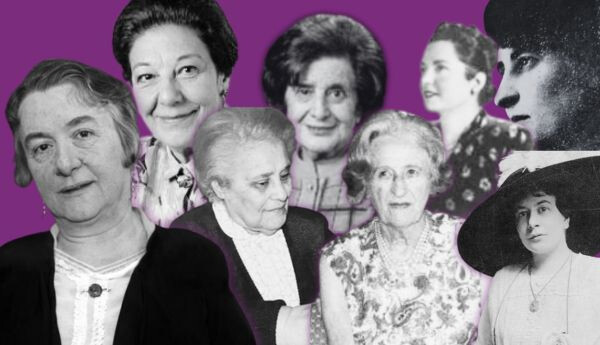
Throughout history, women have played a pivotal role in the evolution of medicine, challenging barriers and contributing to advancements in health and well-being. In Uruguay, numerous female doctors have left an indelible mark. In celebration of Women's History Month, we honor eight remarkable women whose legacies continue to inspire new generations.
Paulina Luisi (1875-1950): A Feminist Pioneer
Paulina Luisi broke barriers as the first woman to earn a medical degree in Uruguay in 1908.
Specializing in gynecology and dermatology, she not only excelled in her field but also became a fierce advocate for women's political and civil rights.
A leading figure in the feminist movement, Luisi served on the boards of international feminist associations and represented Uruguay at numerous global conferences.
Her tireless efforts were instrumental in securing women's suffrage in Uruguay in 1936.
Inés Luisi (1880-1965): A Dedicated Public Servant
Following in her sister Paulina's footsteps, Inés Luisi graduated from the Faculty of Medicine at the University of the Republic in 1917.
She dedicated her career to public service, holding positions such as medical officer for child consultation and inspection at the Asylum, head of the Medical Clinic of the Professor Ricaldoni Service, and physician at the National Public Assistance Service.
Inés Luisi was also a founding member of the Uruguayan Medical Union in 1920 and the first woman to preside over a Faculty of Medicine examining board.
Tula Rovira Mussio (1884-1945): A Rural Healthcare Champion
Tula Rovira Mussio, the second female medical graduate, made significant contributions to infant health.
Her work at the Larrañaga Asylum led to the publication of "On Congenital Mongolian Blue Spot" in 1911, based on her observation of 600 infants.
She was the first female doctor to practice in the interior of Uruguay, settling in Minas in 1912, where she championed the construction of a polyclinic and children's hospital.
Alice Armand Ugón (1887-1992): A Pediatric Luminary
Alice Armand Ugón, a pioneer in pediatrics, was the fifth woman to graduate from medical school.
A student of Dr. Morquio, she joined the Infectious Diseases Pavilion at Pereira Rossell Hospital and became a leading figure in pediatric care.
Her extensive publications in the Revista Médica del Uruguay and contributions to the Latin American Archives of Pediatrics solidified her reputation as a leading expert in the field.
She lived to the age of 105.
María Luisa Saldún de Rodríguez (1907-1966): A Pioneer in Social Pediatrics
María Luisa Saldún de Rodríguez specialized in social pediatrics, child medicine, nutrition, and metabolism.
She made big advances in the study and treatment of childhood diabetes.
She held important positions at the Institute of Pediatrics and Childcare and the Department of Nutrition of the Ministry of Public Health.
She was the first woman to be appointed to a position of this nature by the Council of the Faculty of Medicine.
Élida Murguía (1914-2012): Uruguay's First Female Surgeon
Élida Murguía made history as Uruguay's first female surgeon, specializing in pediatric surgery.
She served in prominent medical institutions, including the Pedro Visca Hospital and the Pereira Rossell Hospital, and led the Pediatric Surgery Service in 1985.
She also tought pediatric surgery at the Faculty of Medicine.
María Antonieta Rebollo (1923-2021): A Neurological Visionary
María Antonieta Rebollo, a dual specialist in pediatrics and neurology, directed the Institute of Neurology and pioneered the field of neuropediatrics.
She helped to create the career path for Technical Psychomotor Reeducation.
She recieved many honors for her work, and helped to create the Center for Teaching, Research and Information on Learning (CEDIIAP).
Irma Gentile (1925-2006): An Infectious Disease Expert
Irma Gentile, a dedicated pediatrician, played a crucial role in advancing infectious disease control in Uruguay.
Her work at the Ministry of Public Health and the Pereira Rossell Hospital led to significant improvements in the treatment of infectious diseases.
She worked to educate people on child abuse, and helped to create the Pediatric Gastroenterology Service.
These eight women not only excelled in their medical careers but also broke down barriers and paved the way for future generations of female doctors in Uruguay.
[Copyright (c) Global Economic Times. All Rights Reserved.]






























